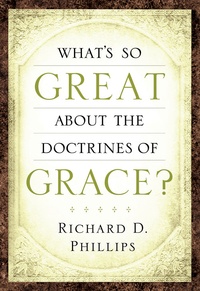“No Christian can avoid theology. Every Christian has a theology. The issue, is not, do we want to have a theology? That’s a given. The real issue is, do we have a sound theology? Do we embrace true or false doctrine?” – Dr. R. C. Sproul
Monthly Archives: May 2012
Can Singing About the Gospel Become Rote?
 From Bob Kauflin writes:
From Bob Kauflin writes:
One of the drums I will never tire of beating is this: All biblical worship is rooted in and made possible by the cross of Christ. In my experience, the contemporary church (and any church, for that matter) is always in danger of neglecting the gospel in its songs. I said it this way in my book, Worship Matters:
The gospel is not merely one of many possible themes we can touch on as we come to worship God. It is the central and foundational theme. All our worship originates and is brought into focus at the cross of Jesus Christ.
Glorying in Jesus Christ means glorying in his cross. That doesn’t mean looking at some icon or two pieces of wood nailed together. Nor does it imply that every song we sing has the word cross in it. It has little to do with church gatherings that are more like a funeral than a celebration.
The cross stands for all that was accomplished through the life, death, and resurrection of Jesus, the Son of God. It focuses on his substitutionary death at Calvary but includes everything that gave meaning to that act. His preexistent state in glory. His incarnation. His life of perfect obedience. His suffering. His resurrection. His ascension. His present intercession and reign in glory. His triumphant return.
I will always plead that worship pastors lead gospel-centered worship that is characterized by:
* an awareness that the cross/gospel should be referenced somewhere in the time of singing.
* viewing the gospel as our primary motivation for praising God.
* helping people understand that only Jesus enables us to approach God – not music, musicians, worship * leaders, or particular worship songs.
* encouraging congregations to be most enthusiastic about the theme the Bible is the most enthusiastic about – the Lamb of God who was slain.
When the Gospel Loses Its Power
But over the years I’ve seen learned that this vital truth can be misapplied. We can practice gospel-centered corporate worship in a way that is more obligatory than faith-filled. What once magnified the glory of Christ becomes lifeless repetition. My friend, Jon Payne, shared some thoughts with me on this topic that I found helpful. He pointed out that a formulaic approach to gospel-centered worship can lead to some of the following problems:
* thinking every song should be exclusively about justification, boldness before the throne, or our sins being completely forgiven.
* thinking every song list should climax with a “gospel” song.
* an inability to reference or articulate uniquely other aspects of the gospel – adoption, reconciliation, union with Christ, etc.
* a scarcity of other themes in our songs such as the wisdom of God, the eternity of God, the power of God, the incarnation, the kingship of Christ, heaven.
* worshiping a doctrine rather than allowing that doctrine to lead us to a living Savior. We are not “crowning the gospel with many crowns.”
Leading gospel-centered worship in a faithless way can lead to some bad fruit:
* The gospel and the Savior lose glory in the eyes of bored worshipers.
* People develop a limited view of God and his attributes.
* People don’t learn how to apply the gospel to other areas of life/Biblical themes.
* The gospel becomes a crude, repetitive statement of facts rather than a lens through which we view all of life.
* We think an explicit reference to the gospel makes our worship acceptable, rather than trust in a crucified and risen Savior.
* Rather than expecting to encounter God because of the gospel people come expecting to repeat faithless facts.
* It’s our responsibility as leaders to make sure, as the Puritans said, that we always “labor to be affected by the cross.” The gospel of Jesus Christ is the greatest news the world has ever heard and our singing should show it.
What have you done to make sure that singing about Christ’s redemptive work on the cross never becomes rote?
Friday Round Up
 (1) There’s some very good deals going on at Ligonier right now in the Friday $5 online Sale.
(1) There’s some very good deals going on at Ligonier right now in the Friday $5 online Sale.
I particularly recommend the hardback book “What’s So Great About the Doctrines of Grace?” by Rick Phillips, normally $15. It might be a good idea to get multiple copies to hand out to friends.
The Face to Face with Jesus CD series is also worth picking up. Check out the $5 Ligonier sale here.
(2) A reminder from yesterday’s blog post: From my friend, Dr. James White, an outstanding resource on a subject that very few will tackle head on: the biblical definition of “marriage” and a refutation of so called “Gay Christianity.” Many questions are answered biblically including:
How did Jesus define marriage?
What really was the sin at Sodom and Gomorrah?
What does Leviticus say about God’s attitude towards homosexuality?
Just how clear is Romans chapter 1 on this issue?
Here is the link.
